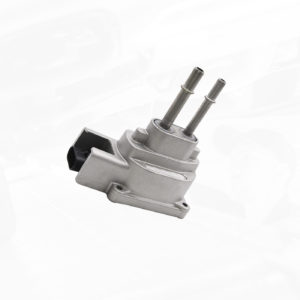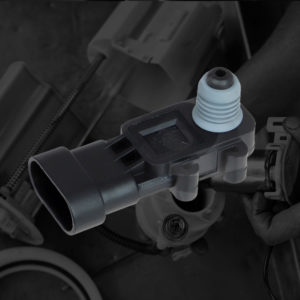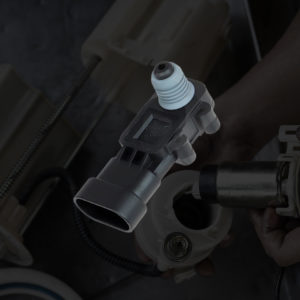In order for the powertrain control module (PCM) to identify the fuel composition and modify the fuel distribution, vehicles that can run on varying percentages of ethanol (Flex Fuel, E85) have a fuel composition sensor in the fuel system.
P0179 is a generic trouble code related to a fault in your fuel composition sensor or its circuit. Know more about it through this article.
What Does the P0179 Code Mean?
Diagnostic trouble code (DTC) P0179 stands for “Fuel Composition Sensor High Input.” The code is set once the PCM detects a high-voltage input coming from the fuel composition sensor circuit.
Some vehicles are equipped with a fuel composition sensor. This sensor keeps track of the amount of ethanol in the gasoline inside a flex-fuel engine. Every time you fill up the tank, the amount of ethanol can change, requiring proper changes for the best performance and fuel efficiency.

Depending on the level of ethanol, the fuel composition sensor circuit provides a signal to the PCM. To burn the fuel more effectively, the PCM modifies the fuel injector pulse width and ignition timing as necessary.
Code P0179 is set once the PCM detects a voltage signal that’s way above factory specifications. This code is usually indicative of an electrical circuit issue.
Note: The definition of code P0179 might be different depending on the vehicle manufacturer. Consult the appropriate repair manual or repair database for the exact code definition.
What Are the Common Causes of the P0179 Code?
- Fuel composition sensor malfunction
- Bad PCM
- Outdated PCM software
- Wiring problems

What Are the Common Symptoms of the P0179 Code?
- Illuminated check engine light
- Poor engine performance
- Difficulty starting engine
- Decreased fuel economy
How to Diagnose the P0179 Code
DTC P0179 is a generic powertrain code that can be logged across different makes and models. However, that doesn’t mean there is only one way to diagnose and clear this trouble code. Luckily, you can always have a certified mechanic do the job for you.
Here is a video of what the diagnostic procedure for this code might involve:
How to Fix the P0179 Code
Attempting to fix a DTC P0179 code isn’t easy. If you don’t have enough technical know-how to get the job done, you might just end up causing more issues. If you’re not sure about anything, it’s best to have the problem fixed by a trained professional to ensure that all steps and protocols are followed properly.
But if you think you can handle the problem on your own, make sure you have the right information before proceeding. Remember that there is no one-size-fits-all solution that works on all makes and models. Before you start, you might want to look into Chilton guides or an ALLDATA membership to get vehicle-specific repair information.
Where to Shop for a New Fuel Composition Sensor
The symptoms related to a logged P0179 code may be troublesome to deal with as most of them cause issues with the engine. Thankfully, one of the ways to clear it is by replacing a faulty fuel composition sensor.
Get a high-quality replacement by shopping at CarParts.com!
Use our vehicle selector to input your ride’s year, make, and model to browse compatible sensors. Further enhance your shopping experience by using our search filters to shop based on your preferred brands or price range.
Our customer support is also available 24/7 to assist you with any concerns you may have.
We have warehouses scattered across the country, so you can expect your package to be packed and shipped in no time. Place your order before noon ET and receive in as fast two business days.
Visit our website today to get the best deals on the market!
Any information provided on this Website is for informational purposes only and is not intended to replace consultation with a professional mechanic. The accuracy and timeliness of the information may change from the time of publication.















